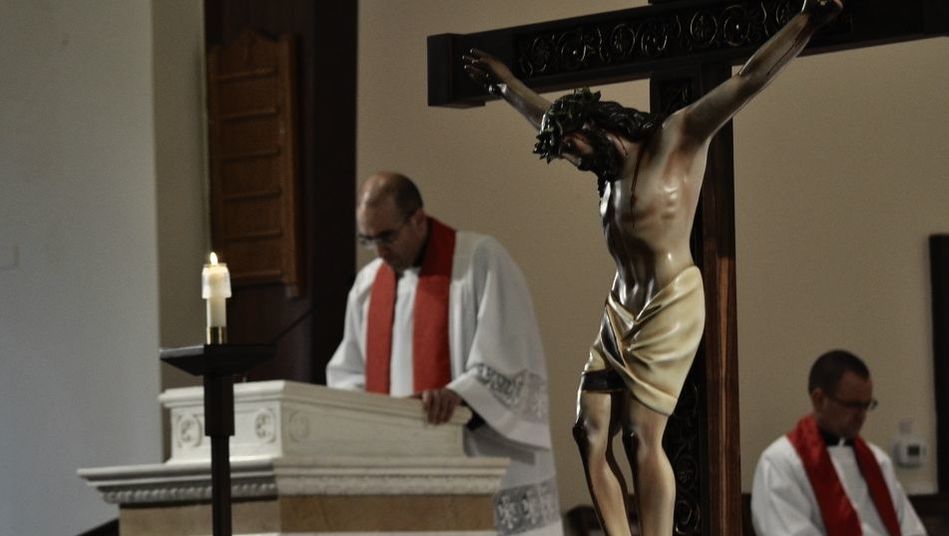Seminario “María, Madre del Verbo Encarnado” – San Rafael, Argentina
So it was that the Cross of Christ stole his heart, conquered him, gave him enthusiasm, and threw the priest into the greatest adventure which can be given to man while he lives upon earth: the total surrender of self to God. This is why there is nothing more beautiful on the face of the earth than a priestly heart, a heart that surrenders itself to God with an undivided and unrestricted love.
Then, because he fell in love with the cross, he pledged himself to her and, even more, he espoused her. Every true priest espouses the cross, and so he is used to suffering in his priestly life: the priestly vocation is not a vocation to have a good time, but to have a bad time, because there he must suffer misunderstandings, defamation, ingratitude, and persecution. It will bring him to the point of tears many times because, as Saint John of Avila says, priests are “the eyes of the Church, whose duty is to weep for all of the evils that come to the body,” just as Jesus cried upon the cross.
Sometimes, the pain and the crying come even without the priest wanting them to. I remember that in my first years as a priest we had organized a living Via Crucis on Good Friday to which many people came. That Saturday I sat from the morning on in the Confessional; I was there more than 11 hours, taking a few small breaks. The following day was the Solemnity of Easter, and there were many Confessions, and, moreover, I had to cele- brate three Masses with three homilies. At midday I could go home and eat lunch with my parents and my brothers. Later I returned to the parish for the evening Mass, took the 5:30 bus that left from the park, and, at a certain moment, I realized that tears had fallen from my eyes. Immediately I composed myself, and I reflected on what thing had provoked those sneaky and un- desired tears; I realized that it was all of the sins that I had heard those past days and all the suffering of those souls, as there is no greater punishment for a sinner than sin itself at the moment when they experience God’s tenderness. In another instance, this happened when one of our religious died, the seminarian Marcelo Javier Morsella. I had to be calm in front of the seminarians–for those seminarians had already been hurt too much by his death and didn’t need another hurt added to their tears–and so I had to contain my tears. However, in the morning I realized my pillow was wet, because during the night, while sleeping, I cried over what I could not during the day.
It is the Cross who gives the priest audacity and courage. It is the Cross who makes it possible for a smile to always spring from his lips in spite of being full of scars himself, and for a crystalline laugh to be the rubric of his works. It is the Cross who gives the priest thirst for great things. It is the Cross who rouses him for the mission, in such a way that the world, east and west, north and south, becomes small for the desires of his heart. The Cross propels him to great deeds, and to deeds that can even be epic.
Finally, I want to make one last reflection, and it is with re- spect to the people: God doesn’t choose a priest from some fami- ly at random; God doesn’t choose a priest from some town at random. The choice is a grace for that family, for that town and, as such, it is a choice freely made by God’s infinite love. Don Orione said that “the family of a priest is saved down to the third and fourth generations.”







